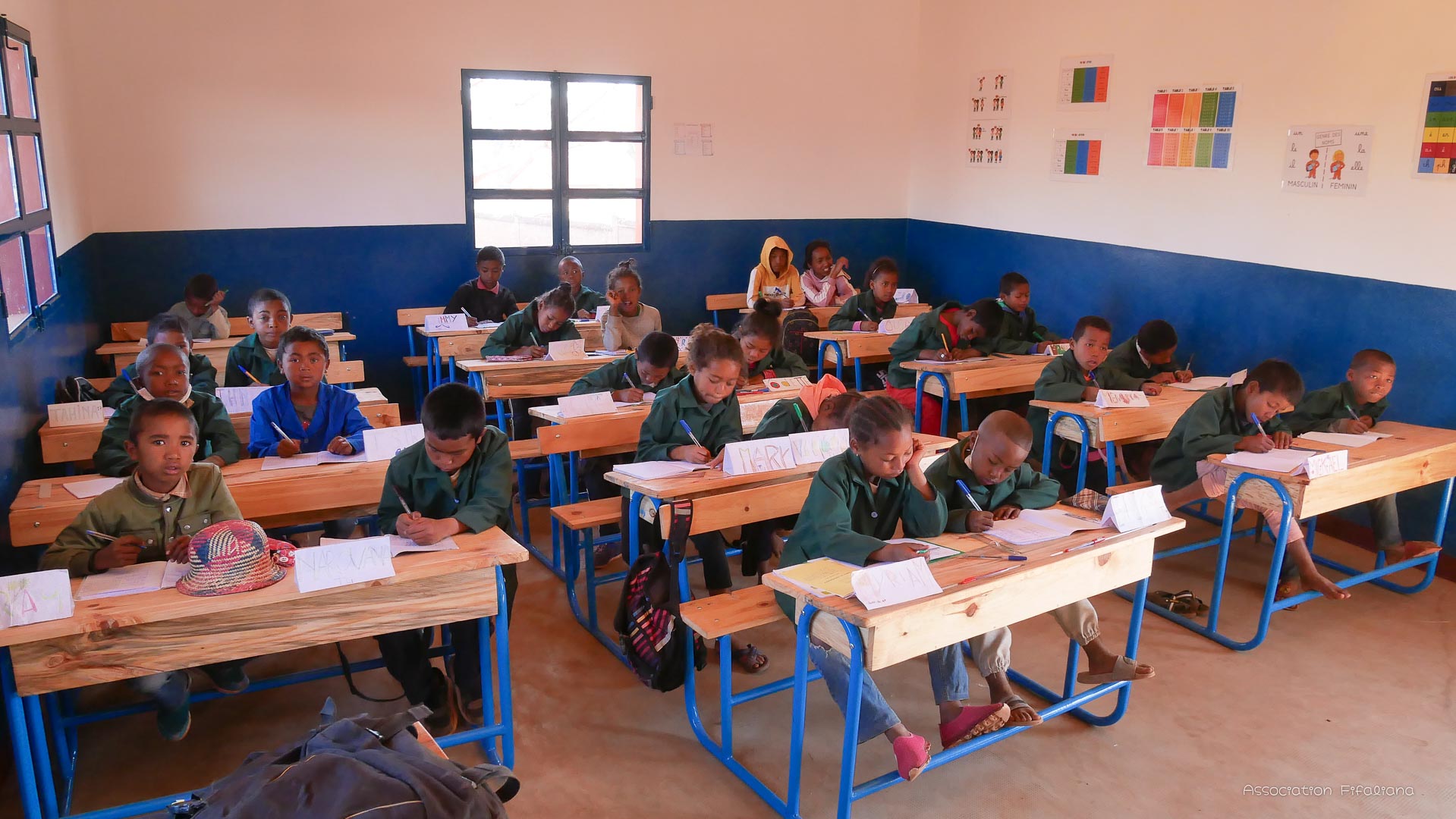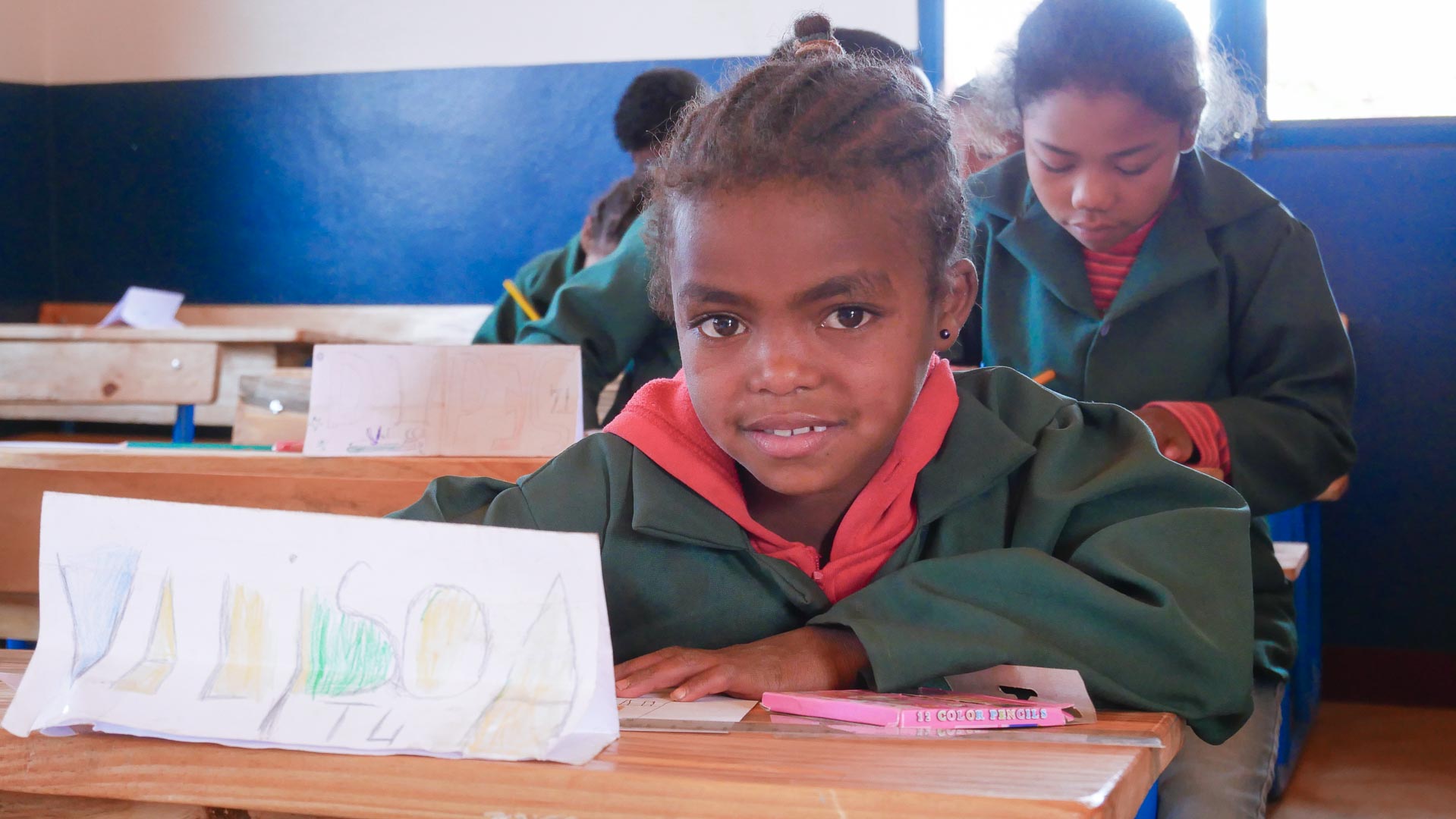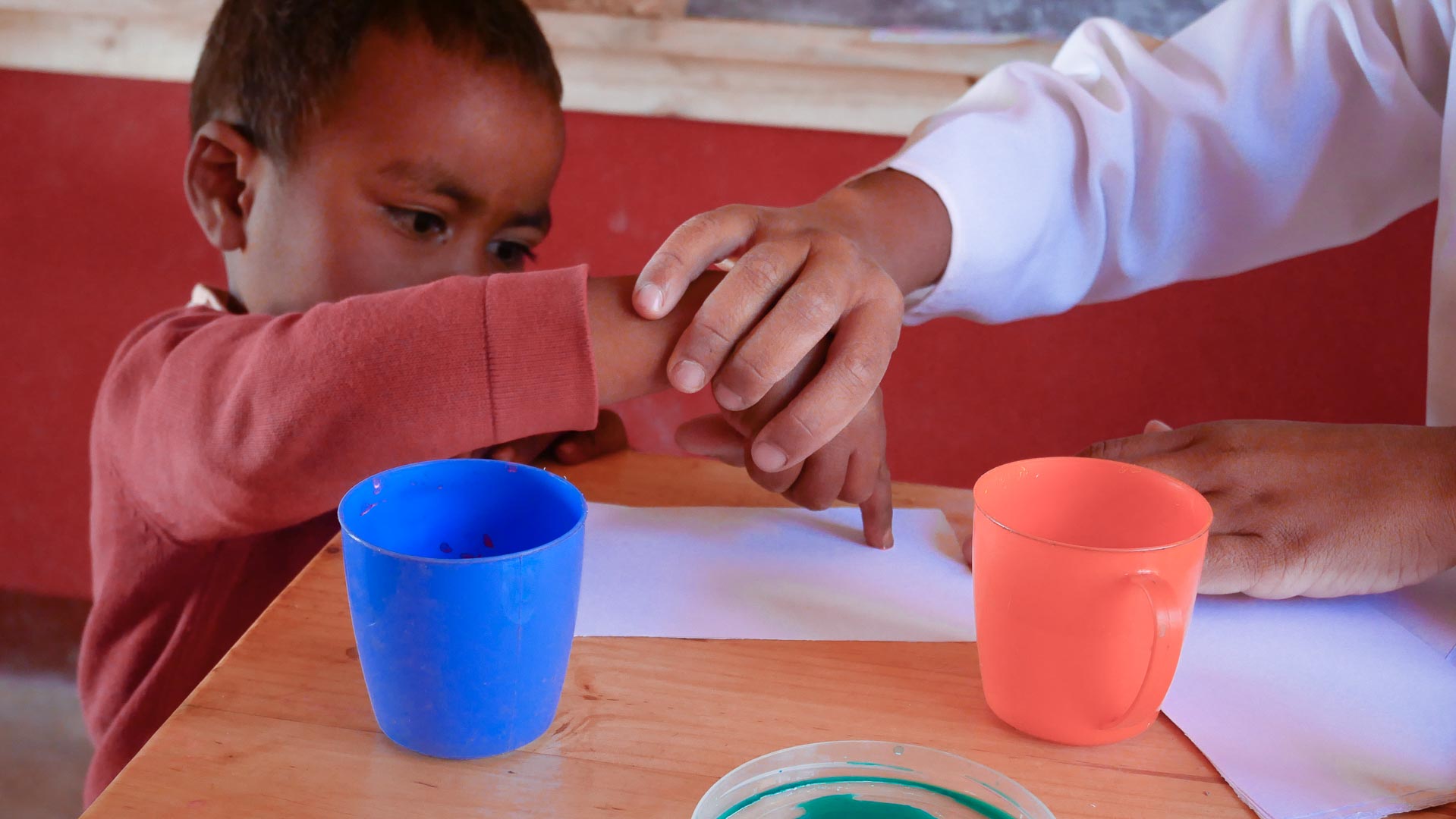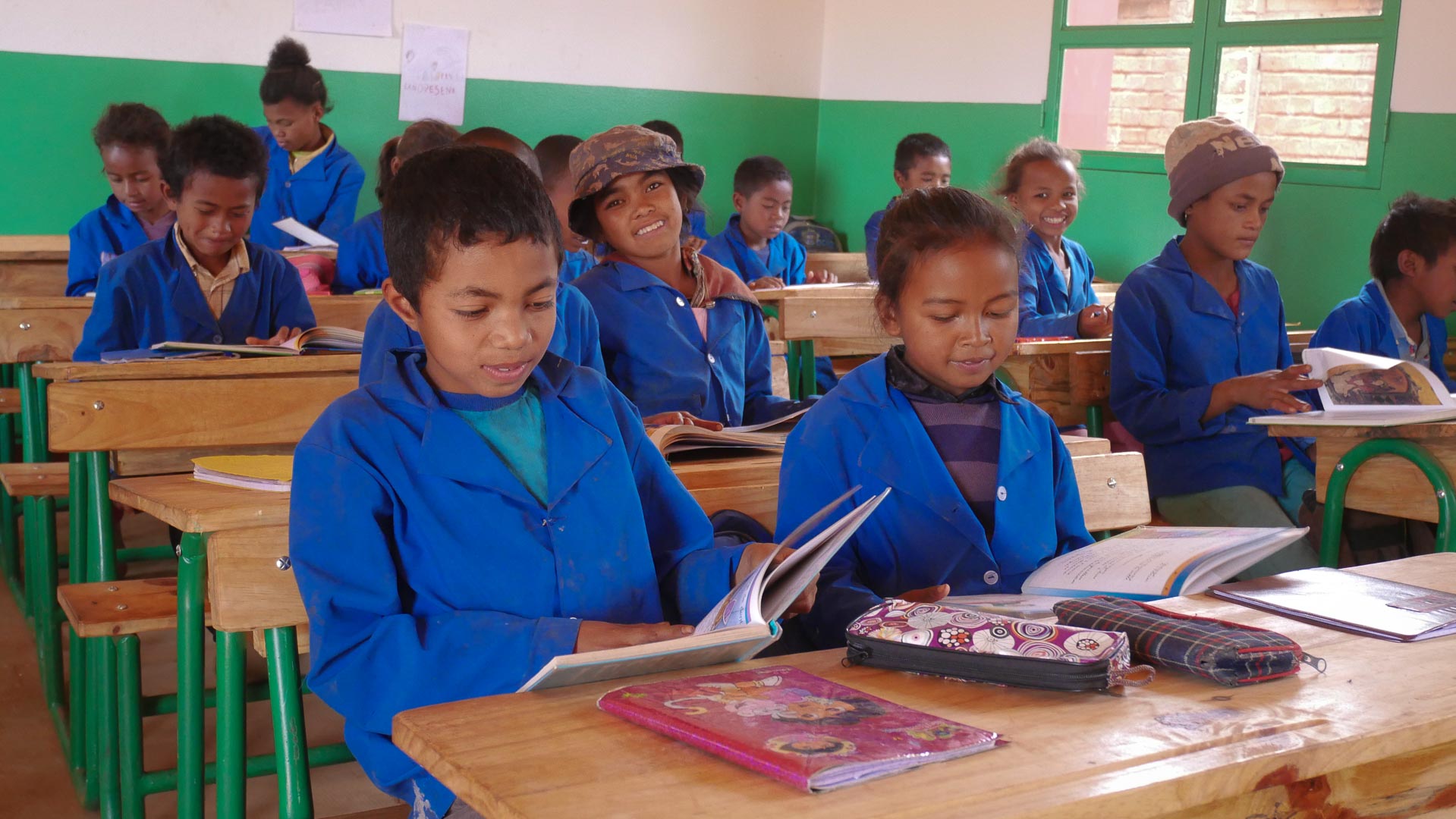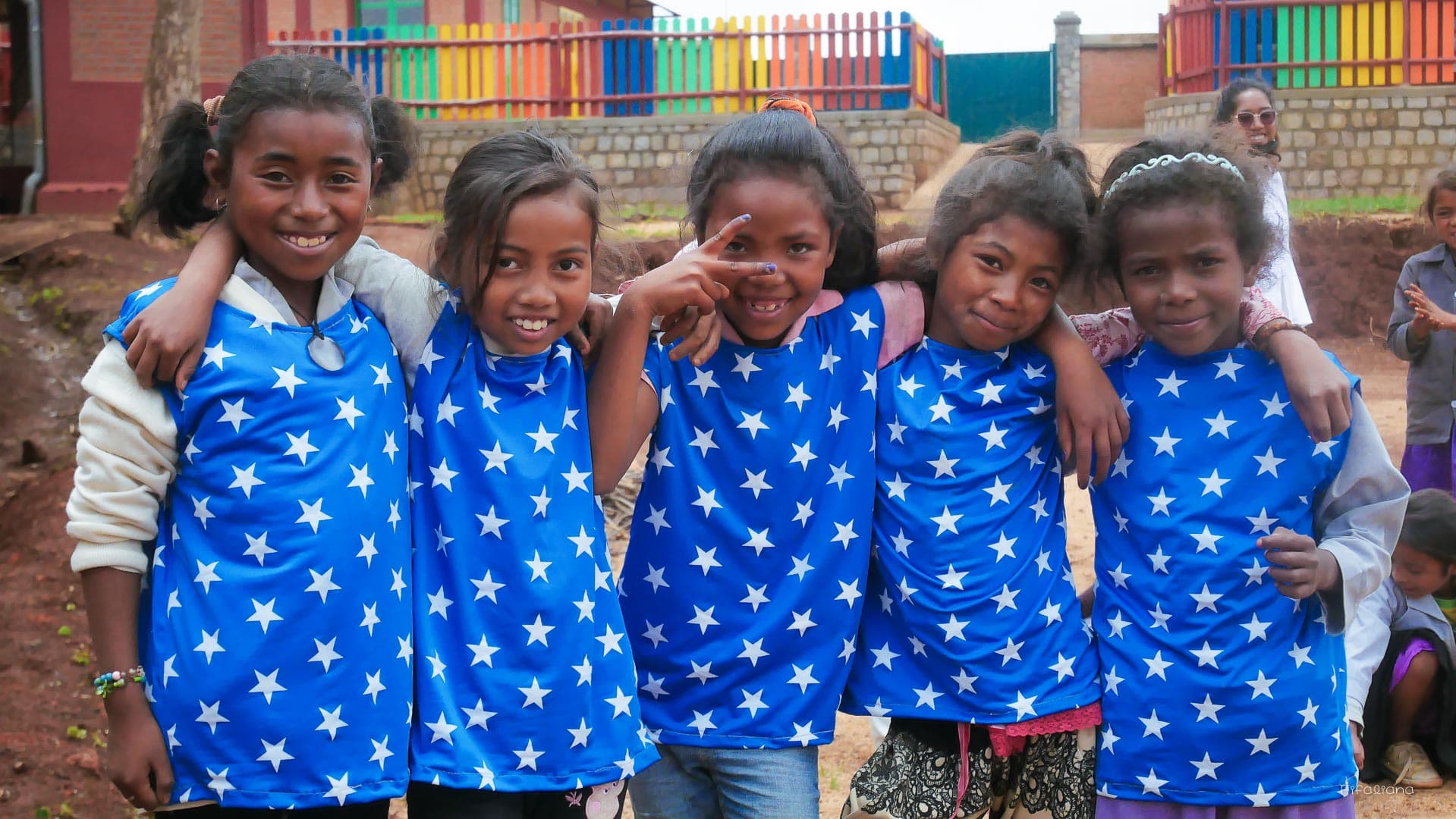SCHOOL
A total of 156 children are divided into 6 classes, from nursery (4/5 years old) to fifth grade. In addition to the 7 tenured teachers, 1 assistant teacher and 2 educators take care of the pupils full time. Besides, there is a coordinator, a cook, a caretaker, and a gardener. The school is free of charge, and it only welcomes poor children who have never been to school or who have dropped out.
As opposed to public primary schools, material conditions are optimal, with spacious classrooms and all-day classes. Some of the school supplies are donated by Fifaliana, while others are kept on hand at school.
Scholarships are awarded to students who have completed their primary education with us so that they can continue to study in secondary school.
